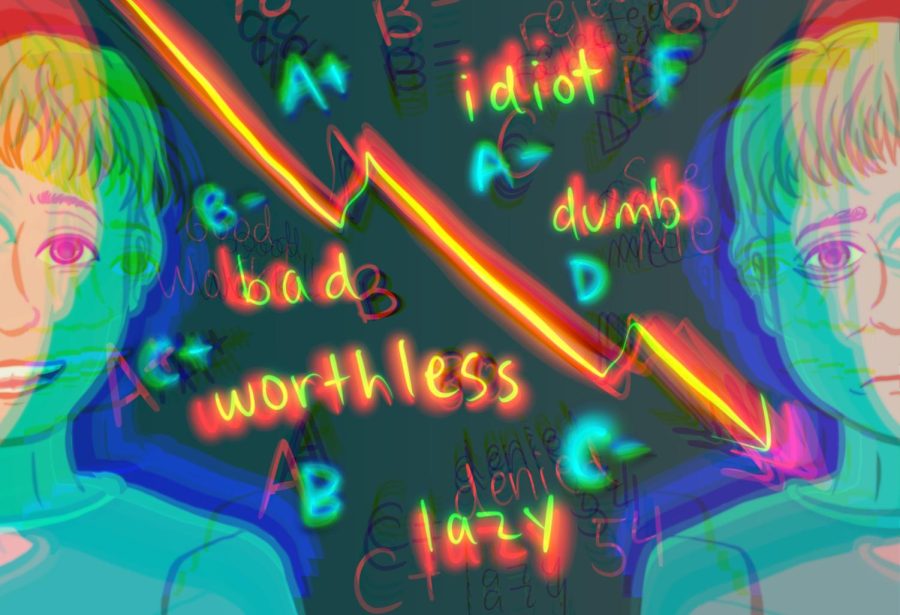Gifted Kid Burnout: Fact or Fiction?
“Gifted kid burnout” has taken over the minds of many teenagers.
The term coined as “gifted kid burnout” has recently picked up traction on social media and has brought forth a common community that feel as if this phrase applies to them. The problem with slang popularized by social media, such as this term, is that it is hard to deconfigure nonsense from reality.
“Gifted kid burnout” is officially defined as, according to the Davidson Institute, “chronic exhaustion that stems from a mismatch between the individual and their current educational environment…gifted child burnout is often tied to an educational system that the child finds repetitive, unrewarding, without autonomy, unfair, or not aligned with their values. Gifted kids may also experience burnout due to the unique sources of stress in their lives and the expectations that come with being gifted.”
However, a more simple understanding of this term can be described as “when children who were once considered the ‘gifted’ or ‘smart’ kids in class grow up to underperform academically and (most likely) socially,” defined by Urban Dictionary.
Nevertheless, the real question still remains: is there any truth or substance to this trendy phrase?
Personally, I have (and continue to) struggled with the effects that come along with the disease gifted kid burnout. Growing up, kids who are naturally gifted at school are not normally separated from their peers, who may struggle more when it comes to learning. Because there is no divide between their educational content and expectations, gifted kids breeze through school and aren’t required to develop any appropriate study habits. In my early experiences, I was always the 1 the teacher asked to explain the tough material to struggling students, almost making me feel like the teacher. I was always being praised in student-teacher conferences and never doubted my ability to get good grades.
The cycle just continues from there. You start to get a taste of what you are in for – getting good grades with ease and being known as the “smart kid” in class. You start to get accustomed to being the best, which is fine until it is the reason for your downfall.
As time goes on, the more gifted kids can get the chance to be moved into more advanced classes. This unfortunately comes with a harsh wake up call. The formally smart kids are now reduced to being normal students who are at the same academic level of their peers. It now takes effort to keep up with the workload given, and since you are so accustomed to getting perfect grades, you feel like a failure when you receive anything less.
As a child who grew up with strict expectations and parents, I never felt like I was able to take a break and step back from school. By the time those outward expectations had lifted, it was so ingrained in my head that I couldn’t fathom the thought of not being perfect. I am not alone in that mindset as many other “gifted kids” feel this struggle as they grow older.
“I feel like when I was younger school came super easily to me and in middle school and elementary school I never had to study in order to get good grades. However, when I started taking Advanced Placement (AP) classes, it came as a shock when things didn’t come as easy. I realized that I didn’t know how to study or prepare for any tests. It proved hard to learn new study habits since I was already so old,” said junior Isabelle Katz.
Gifted kid burnout affects not only the child’s study habits, but who they are as a person. They can lose sight of their priorities and their sense of worth, finding it difficult to display a growth mindset when they are not immediately good at something due to their underdevelopment during their youth. Many also struggle with outward consequences like procrastination, lack of sleep, anxiety, and other mental health issues that can all stem from this burnout. These bad habits can stick with people into their adulthood and can eventually lead to complications with jobs that they get later in life.
To finally answer the widely speculated question, is gifted kid burnout real? In short, completely.
However, the longer answer is a little bit more complicated and messy. It is a defined struggle with many overlapping causes, and has affected a plethora of subjects. The slang that started as a funny internet trend has a much darker underlying meaning that is the root of many students’ mental health struggles. It is a topic that has still yet to be taken seriously, however, I believe that people should shed light on it soon or else it may end up creating consequences that are irreversible.
Your donation will support the student journalists of Campolindo High School's The Claw. Your contribution will allow us to produce more issues and cover our annual website hosting costs.

Makayla Erickson, a senior at Campolindo, enjoys participating in the Campo Choir. From a young age she was fond of performing, but realized her passion...


